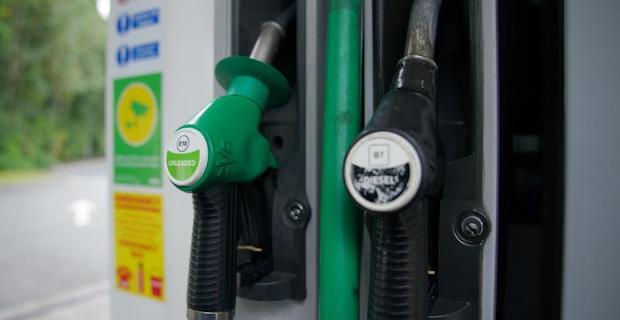The motoring group said fuel retailers were using the "distraction" of the general election to keep profit margins "persistently high". It called on the UK's competition body to bring retailers "into line as soon as it's able to". However, a body representing fuel retailers said businesses were facing higher costs and also having to invest in new technology for electric vehicles. Concerns about the high price of fuel prompted the competition regulator, the Competition and Markets Authority (CMA), to look into the sector last year and it concluded that some retailers were overcharging. In March this year, the CMA, external looked again at prices and said the sustained increase in the level of fuel profit margins was "concerning". The RAC, which has long campaigned over fuel costs, says prices at the pumps have remained high despite wholesale costs having fallen since the end of April. The average price of a litre of petrol is 146.3p, which it said was 5p higher than it should be given the equivalent price in Northern Ireland is 141.1p. The group also said that the UK has seen the most expensive diesel prices in Europe for the past seven weeks, with the average litre costing 151.5p. The average profit margin per litre for retailers are currently 14p on petrol and 16p on diesel, RAC data found, which it said appeared "excessively high" given the long-term margins for both fuels are 8p a litre.
RAC head of policy Simon Williams said: “While there has been much focus on fuel since the Competition and Markets Authority concluded the biggest retailers had overcharged drivers by £900m in 2022, margins are once again staying persistently high - and drivers are paying the price. “Our data clearly shows that pump prices haven’t fallen in line with the reduction in wholesale prices, so drivers across the UK - with the exception of those in Northern Ireland where fairer prices are charged - are once again losing several pounds every time they fill up." But the Petrol Retailer's Association (PRA) said comparing current fuel margins to historical figures overlooks "several critical factors". "We must consider the significant increases in operating costs, reduced fuel volumes post-pandemic, and the substantial investments required to transition to a low-carbon transportation system," said Gordon Balmer, the PRA's executive director. "These factors mean that fuel retailers need to earn more from fuel sales to stay in business and invest in the future." He added that forecourts are "ideally suited" to electric vehicle charging points, and many PRA members were investing in these "despite the slower-than-anticipated uptake of electric vehicles and the long payback periods for such investments".


 Prime Minister Keir Starmer's 2025 Easter message
Prime Minister Keir Starmer's 2025 Easter message After Nesil Caliskan a by-election will be held in Jubilee ward in Enfield
After Nesil Caliskan a by-election will be held in Jubilee ward in Enfield Publishing the analysis, Labour’s Cllr Ergin Erbil said Everybody in Enfield deserves basic rights
Publishing the analysis, Labour’s Cllr Ergin Erbil said Everybody in Enfield deserves basic rights Gaza-Israel conflict Statement from Cllr Ergin Erbil, Leader of Enfield Council
Gaza-Israel conflict Statement from Cllr Ergin Erbil, Leader of Enfield Council The European Union called on Turkey to uphold democratic values
The European Union called on Turkey to uphold democratic values Turkish citizens in London said Rights, Law, Justice
Turkish citizens in London said Rights, Law, Justice The Council of Turkish Cypriot Associations Geneva response letter
The Council of Turkish Cypriot Associations Geneva response letter Sustainable Development and ESG, Will This Become the Course for Turkic World
Sustainable Development and ESG, Will This Become the Course for Turkic World The 'Prince of Paris' has impressed in his first EuroLeague season
The 'Prince of Paris' has impressed in his first EuroLeague season Saran Media And Euroleague Basketball Extend Media Rights Partnership for Four More Years
Saran Media And Euroleague Basketball Extend Media Rights Partnership for Four More Years Will Rangers be Jose Mourinho’s next victim?
Will Rangers be Jose Mourinho’s next victim? Jose Mourinho's Fenerbahce face Rangers on Thursday
Jose Mourinho's Fenerbahce face Rangers on Thursday Barclays has become the biggest UK lender so far to cut mortgage rates
Barclays has become the biggest UK lender so far to cut mortgage rates THE SPRING STATEMENT EXPLAINED, UK ECONOMIC OUTLOOK AND GROWTH FORECASTS
THE SPRING STATEMENT EXPLAINED, UK ECONOMIC OUTLOOK AND GROWTH FORECASTS Launch of Made in Enfield gift shop to celebrate local artists and designers
Launch of Made in Enfield gift shop to celebrate local artists and designers Trial used smart Wi-Fi sensors for live building occupancy data to optimise
Trial used smart Wi-Fi sensors for live building occupancy data to optimise















